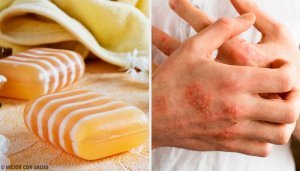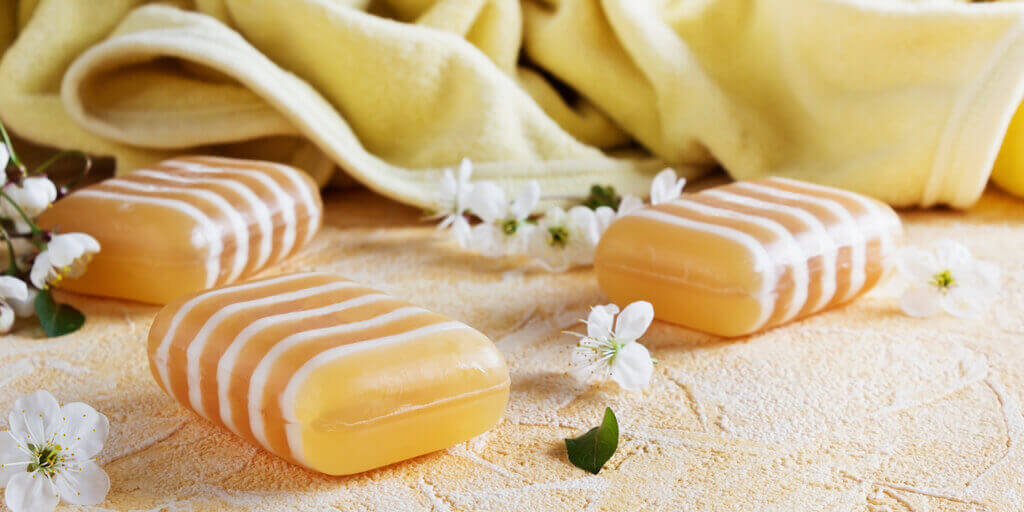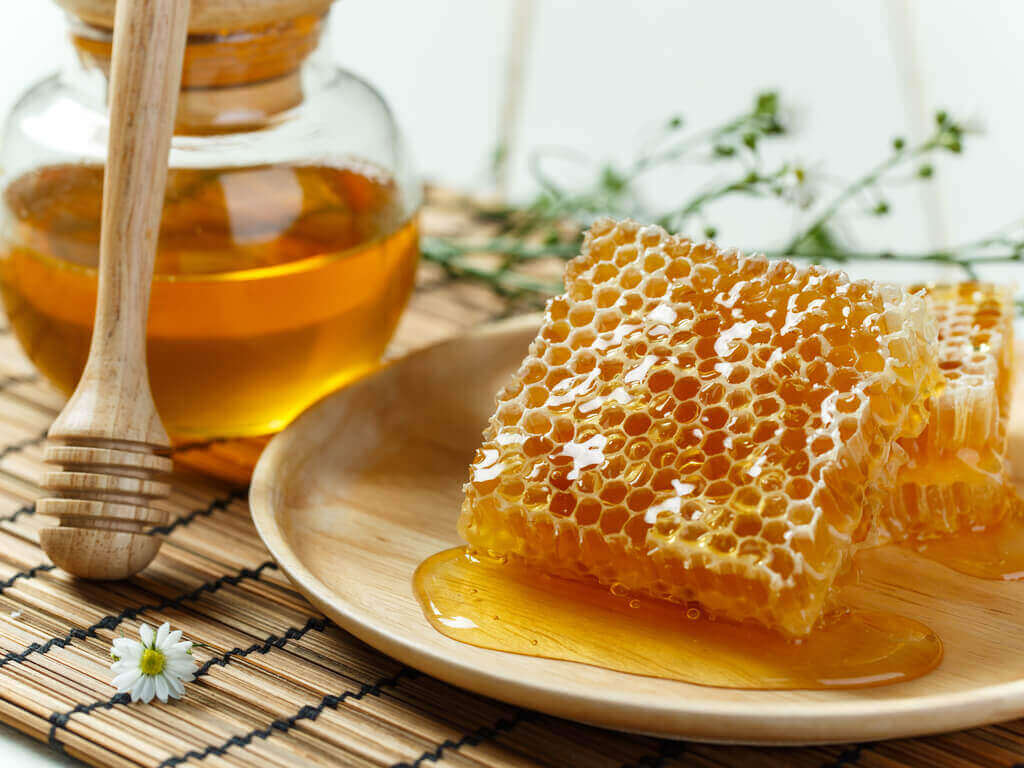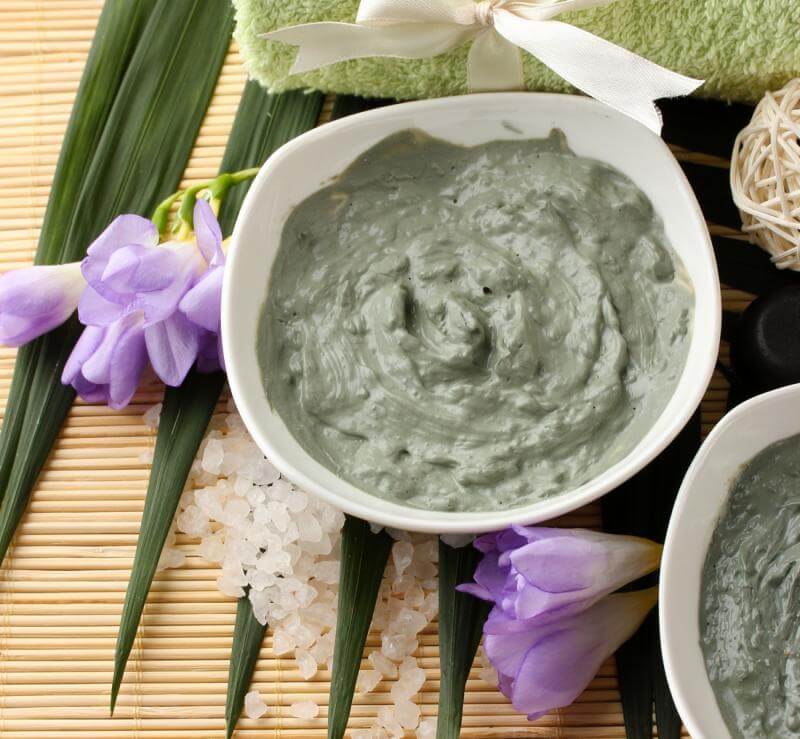Homemade Glycerin, Propolis, and Clay Soap for Dermatitis

Dermatitis is a difficult skin condition to treat because, like all skin problems, it can be related to the food you eat, your nerves and emotions, your surroundings, and more.
In today’s article, we want to share a simple recipe with you for homemade soap made with glycerin, propolis, and clay, which has anti-inflammatory properties that will help you overcome dermatitis naturally.
What is dermatitis?
Dermatitis is an inflammation of the skin and is characterized by symptoms like itching and redness. There are different types of dermatitis and the causes can also vary, which is why it’s a difficult disorder to treat for lots of people.
You might suffer from acute dermatitis as a result of a specific exposure factor, such as allergies, or your dermatitis could be chronic.
We recommend reading: Seasonal Allergies: Causes, Symptoms, and Treatment
Healing ingredients
Glycerin

Glycerin is the base ingredient for natural and sulfate-free soaps. It has antiseptic properties that prevent infections and help your skin retain moisture. In addition, it also adds softness and prevents discoloration of the skin.
Making soap with glycerin is very easy because you can mix this ingredient with others that have additional healing properties for your skin.
Propolis

It is a mixture of resin that bees have extracted from plants and trees to protect their hives. This means that the nutritional value is very complex and variable, as it depends on the plant source from which it comes.
What is certain is that propolis contains a lot of vitamins, minerals, antioxidants, and essential oils that all function to protect the hive.
When it comes to dermatitis, propolis is very effective as an anti-inflammatory and analgesic treatment while also promoting better circulation in the skin.
It’s a natural antibiotic without the side effects, which you can consume or apply directly to your skin.
Clay

- Clay provides a large number of minerals and trace elements that penetrate the blood supply through the skin’s pores.
- Plus, it helps reduce inflammation.
- It even extracts toxins from the body.
These three benefits make it a great product for beauty treatments as well as a remedy for certain skin disorders.
See also: How to Make a Coffee Clay Cream to Firm Flabby Skin
Natural and homemade soap
Ingredients
To make this homemade soap, you’ll need the following ingredients:
- 1 solid tablet of glycerin soap (100 g)
- 1 tablespoon of propolis liquid extract (8 ml)
- 3 tablespoons of fine powder clay (45 g)
- You can also add a few drops of your favorite essential oil to give this soap a special scent, such as lavender, rosemary, lemon, or orange.
Preparation
To make this dermatitis treatment soap, follow these simple steps:
- Heat the glycerin bar until it melts. You can do this on the stove or in the microwave.
- You don’t need to bring it to a boil. Just heat it until the glycerin liquefies.
- At this time, pour the glycerin into a glass bowl and add the liquid propolis and clay.
- Mix well. Use a wooden spoon or a glass utensil – not plastic or metal. This is essential for maintaining the healing properties of the clay.
- Once it’s mixed together, pour the mixture into a mold or any container that will give your soap its shape. You can use a soap dish or the base of a plastic bottle.
- Allow it to cool and your soap will be ready.
How should you use it?
- Wash the areas affected by dermatitis twice a day with this homemade soap, once in the morning upon waking, and once in the evening before you go to bed.
- Next, be sure to hydrate your skin well with a natural lotion made with aloe vera, coconut oil, olive oil, or calendula oil.
- Finally, avoid using any products that aren’t natural and contain sulfates, parabens, or other harmful chemical ingredients.
All cited sources were thoroughly reviewed by our team to ensure their quality, reliability, currency, and validity. The bibliography of this article was considered reliable and of academic or scientific accuracy.
L.j, B., M, P., & J.e, K. (2018). Treatment of seborrheic dermatitis: a comprehensive review. Journal of Dermatological Treatment. https://doi.org/10.1080/09546634.2018.1473554
Oryan, A., Alemzadeh, E., & Moshiri, A. (2018). Potential role of propolis in wound healing: Biological properties and therapeutic activities. Biomedicine and Pharmacotherapy. https://doi.org/10.1016/j.biopha.2017.12.069
This text is provided for informational purposes only and does not replace consultation with a professional. If in doubt, consult your specialist.








